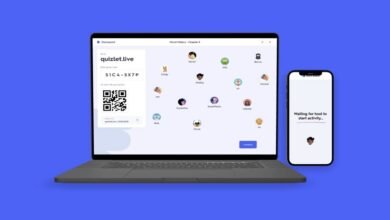I’m Feeling Curious? Revealing the Uncommon Truth

Curiosity is a strong force that pushes us to explore, learn, and discover new things. We’ve all felt it at one time or another. Have you ever thought, “I’m feeling curious,” and then set out to learn something new? I know I have. Whether it’s a question that pops up while reading or a random thought that leads to a search for answers, curiosity is what drives us to explore beyond what we already know.
In this post, we’ll look into curiosity and see how it impacts not only our learning but also our personal growth, work, and relationships. Let me tell you from experience—embracing curiosity can change the way you live your life. So, if you’re feeling curious (and I bet you are), let’s explore this exciting topic together.
What is Curiosity?
Curiosity is more than just a passing thought. It’s a natural desire to explore, learn, and grow. It’s the spark that drives us to learn more about the world. A few years ago, I asked myself about the origins of certain traditions in my country. That simple question led me to months of research and a deeper understanding of our history. I was “feeling curious,” and that curiosity led me to discoveries I never expected.
Curiosity isn’t just for big questions. It can be as simple as wanting to know how things work or trying a new hobby. Whether you’re curious about how your favorite dish is made or about the stars in the sky, curiosity is the force behind our search for answers.
Curiosity is part of who we are. It pushes us to try new things, ask questions, and never stop exploring. When we embrace it, we open doors to endless opportunities to learn.
The Science Behind Curiosity
Curiosity is deeply connected to our brain’s biology. When we feel curious, our brain releases dopamine, the “feel-good” chemical. This is why curiosity feels so rewarding—it gives us a sense of excitement, like a small reward waiting for us when we find answers. I’ve often felt energized after diving into a new topic, just like when I decided to learn about the psychology behind curiosity itself.
When we encounter something new, our brain’s reward system is activated, making us want to learn more. Research shows that curiosity activates areas of the brain tied to learning, memory, and problem-solving. This scientific side of curiosity is powerful—not only does it feel good, but it also improves our thinking skills. Curiosity helps us engage more deeply with the world, making us better thinkers.
So, the next time you ask a question or dive into a new topic, remember—it’s not just a passing thought. It’s your brain helping you grow and learn.
How “I’m Feeling Curious” Shapes Our Lives
Curiosity is like a compass—it guides our decisions and shapes the paths we take in life. For me, curiosity has always played a big role in how I approach new experiences. I remember being curious about online business. That curiosity led me to start my e-commerce business selling products like baby pillow sets. It was a leap, but curiosity about digital marketing and entrepreneurship pushed me to go for it.
Curiosity also helps us understand the world and connect with others more meaningfully. When we ask questions, we don’t just seek answers; we build relationships and gain a better understanding of people’s experiences. It fosters empathy and connection. In my life, the most eye-opening conversations often start with simple questions like, “How did you get here?” or “What’s your story?”
If you’re feeling curious right now, don’t hold back. Your curiosity can open doors to new opportunities, people, and a deeper understanding of your own potential.
The Role of Curiosity in Education
Looking back on my own education, I realize that curiosity was the key to my learning. It wasn’t the textbooks or lectures that captured my attention—it was the questions I asked. I wanted to know, “Why is history so important?” or “How does economics affect our daily lives?” Curiosity drove me to seek answers and dive deeper into topics I hadn’t thought about before.
In the classroom, curiosity leads to more active learning. It encourages us to think critically, rather than just memorize facts. When we’re curious about a topic, we’re more likely to explore it beyond what’s taught. This makes our learning richer and more meaningful.
As teachers, we need to nurture curiosity in students. I’ve seen firsthand how a curious student can change their entire approach to learning. It’s not about giving them all the answers—it’s about sparking that curiosity and letting them explore.
Curiosity and Personal Growth
Curiosity is not just about knowledge—it’s about growth. When we ask, “What do I really want in life?” or “How can I improve myself?” we’re starting a journey of self-improvement. My curiosity about different career paths led me to explore areas I hadn’t considered before. Curiosity pushed me to try new things and seek opportunities to grow.
Every time I challenge myself to learn something new, whether it’s a new skill or a deeper understanding of myself, I’m growing. Curiosity about who we are and what we can become drives us to reach new heights.
Don’t be afraid to let curiosity lead the way. It’s not just about finding answers—it’s about expanding your mind, exploring new ideas, and becoming the person you are meant to be.
Curiosity in the Workplace
In my professional life, curiosity has shaped how I approach work. Whether it’s finding ways to improve my business or staying ahead in a changing world, curiosity keeps me motivated. When you’re curious about your work, you’re more likely to come up with new ideas, solve problems creatively, and keep developing your skills.
Curiosity in the workplace doesn’t just help you—it helps the whole organization. Curious employees are more likely to collaborate, share ideas, and come up with solutions to challenges. It’s often the curious ones who lead innovation and improve processes.
So, if you’re working on something now, ask yourself—what are you curious about? How can curiosity help you do your job better or push you to the next level in your career?
How to Cultivate Curiosity
Cultivating curiosity doesn’t happen overnight, but it’s worth it. One way I’ve nurtured curiosity is by making time for exploration. Whether it’s reading articles on topics I’m interested in or asking “What if?” questions, I actively seek new knowledge.
You can also surround yourself with people who inspire you to think differently. Conversations with curious people often lead to new ideas and deeper insights. The more you engage with curious minds, the more your own curiosity will grow.
Lastly, be open to new experiences. Stepping out of my comfort zone has been one of the best ways to grow my curiosity. Every new experience opens up new possibilities for learning.
Overcoming Barriers to Curiosity
Curiosity can be blocked by fear, doubt, or lack of time. I’ve experienced this, especially when life gets overwhelming. But I’ve learned that curiosity is something we need to prioritize, even in busy times.
To overcome barriers, I’ve learned to embrace failure as part of the process. It’s okay not to have all the answers right away—the key is exploring. Setting small goals, like reading one article a week or learning a new skill every month, can help make curiosity a regular part of your life.
Remember, it’s not about being perfect—it’s about staying curious and asking questions.
The Future of Curiosity in the Digital Age
As we enter the digital age, curiosity has more opportunities than ever. With the internet, we can learn about anything from the comfort of our homes. I often watch documentaries or take online courses to dive deeper into topics that interest me. The digital world has changed the way we explore and learn.
But it’s important to be careful with all the information online. In the digital age, we must be critical of what we read. I’ve learned to check my sources and make sure the information I’m learning is accurate and trustworthy. Curiosity is a powerful tool, but it’s even better when combined with critical thinking.
Conclusion
Curiosity is more than just a feeling—it’s a way of life. From personal growth and education to innovation and creativity, curiosity shapes who we are and how we interact with the world. If you’re feeling curious, don’t hold back. Embrace it and explore what it has to offer. Every discovery, big or small, brings you closer to a more fulfilled and engaged life.
FAQs
What is the importance of curiosity? Curiosity drives learning, growth, and discovery. It encourages us to explore new ideas, ask questions, and seek understanding.
How can I cultivate curiosity in my life? You can cultivate curiosity by embracing a mindset of lifelong learning, setting aside time for self-reflection, and engaging with curious individuals.
Why is curiosity important in education? Curiosity encourages active learning, fosters deeper understanding, and helps students engage with the material in meaningful ways.
Can curiosity lead to personal growth? Yes, curiosity motivates us to explore new experiences, develop new skills, and reflect on our own lives, all of which contribute to personal growth.





